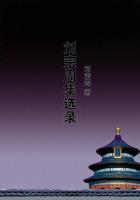"When the treaty of commerce took place, at the period I mention, the experienced Vergennes foresaw--what afterwards really happened--that France would be inundated with British manufactures; but Calonne obstinately maintained the contrary, till he was severely reminded of the consequence of his misguided policy, in the insults inflicted on him by enraged mobs of thousands of French artificers, whenever he appeared in public. But though the mania for British goods had literally caused an entire stagnation of business in the French manufacturing towns, and thrown throngs upon the 'pave' for want of employment, yet M. de Calonne either did not see, or pretended not to see, the errors he had committed.
Being informed that the Comte de Vergennes had attributed the public disorders to his fallacious policy, M. de Calonne sent a friend to the Count demanding satisfaction for the charge of having caused the riots.
The Count calmly replied that he was too much of a man of honour to take so great an advantage, as to avail himself of the opportunity offered, by killing a man who had only one life to dispose of, when there were so many with a prior claim, who were anxious to destroy him 'en societe'.
I Bid M. de Calonne,' continued the Count, 'first get out of that scrape, as the English boxers do when their eyes are closed up after a pitched battle. He has been playing at blind man's buff, but the poverty to which he has reduced so many of our tradespeople has torn the English bandage from his eyes!' For three or four days the Comte de Vergennes visited publicly, and showed himself everywhere in and about Paris; but M. de Calonne was so well convinced of the truth of the old fox's satire that he pocketed his annoyance, and no more was said about fighting.
Indeed, the Comte de Vergennes gave hints of being able to show that M. de Calonne had been bribed into the treaty."
[The Princesse de Lamballe has alluded in a former page to the happiness which the Queen enjoyed during the visits of the foreign Princes to the Court of France. Her papers contain a few passages upon the opinions Her Majesty entertained of the royal travellers;which, although in the order of time they should have been mentioned before the peace with England, yet, not to disturb the chain of the narrative, respecting the connection with the Princesse de Lamballe, of the prevailing libels, and the partiality shown towards the English, I have reserved them for the conclusion of the present chapter. The timidity of the Queen in the presence of the illustrious strangers, and her agitation when about to receive them, have, I think, been already spoken of. Upon the subject of the royal travellers themselves, and other personages, the Princess expresses herself thus:]
"The Queen had never been an admirer of Catharine II. Notwithstanding her studied policy for the advancement of civilization in her internal empire, the means which, aided by the Princess Dashkoff, she made use of to seat herself on the imperial throne of her weak husband, Peter the Third, had made her more understood than esteemed. Yet when her son, the Grand Duke of the North,--[Afterwards the unhappy Emperor Paul.]--and the Grand Duchess, his wife, came to France, their description of Catharine's real character so shocked the maternal sensibility of Marie Antoinette that she could scarcely hear the name of the Empress without shuddering. The Grand Duke spoke of Catharine without the least disguise. He said he travelled merely for the security of his life from his mother, who had surrounded him with creatures that were his sworn enemies, her own spies and infamous favourites, to whose caprices they were utterly subordinate. He was aware that the dangerous credulity of the Empress might be every hour excited by these wretches to the destruction of himself and his Duchess, and, therefore, he had in absence sought the only refuge. He had no wish, he said, ever to return to his native country, till Heaven should check his mother's doubts respecting his dutiful filial affection towards her, or till God should be pleased to take her into His sacred keeping.
"The King was petrified at the Duke's description of his situation, and the Queen could not refrain from tears when the Duchess, his wife, confirmed all her husband had uttered on the subject. The Duchess said she had been warned by the untimely fate of the Princess d'Armstadt, her predecessor, the first wife of the Grand Duke, to elude similar jealousy and suspicion on the part of her mother-in-law, by seclusion from the Court, in a country residence with her husband; indeed, that she had made it a point never to visit Petersburg, except on the express invitation of the Empress, as if she had been a foreigner.
"In this system the Grand Duchess persevered, even after her return from her travels. When she became pregnant, and drew near her accouchement, the Empress-mother permitted her to come to Petersburg for that purpose;but, as soon as the ceremony required by the etiquette of the Imperial Court on those occasions ended, the Duchess immediately returned to her hermitage.
"This Princess was remarkably well-educated; she possessed a great deal of good, sound sense, and had profited by the instructions of some of the best German tutors during her very early years. It was the policy of her father, the Duke of Wirtemberg, who had a large family, to educate his children as 'quietists' in matters of religion. He foresaw that the natural charms and acquired abilities of his daughters would one day call them to be the ornaments of the most distinguished Courts in Europe, and he thought it prudent not to instil early prejudices in favour of peculiar forms of religion which might afterwards present an obstacle to their aggrandisement.














